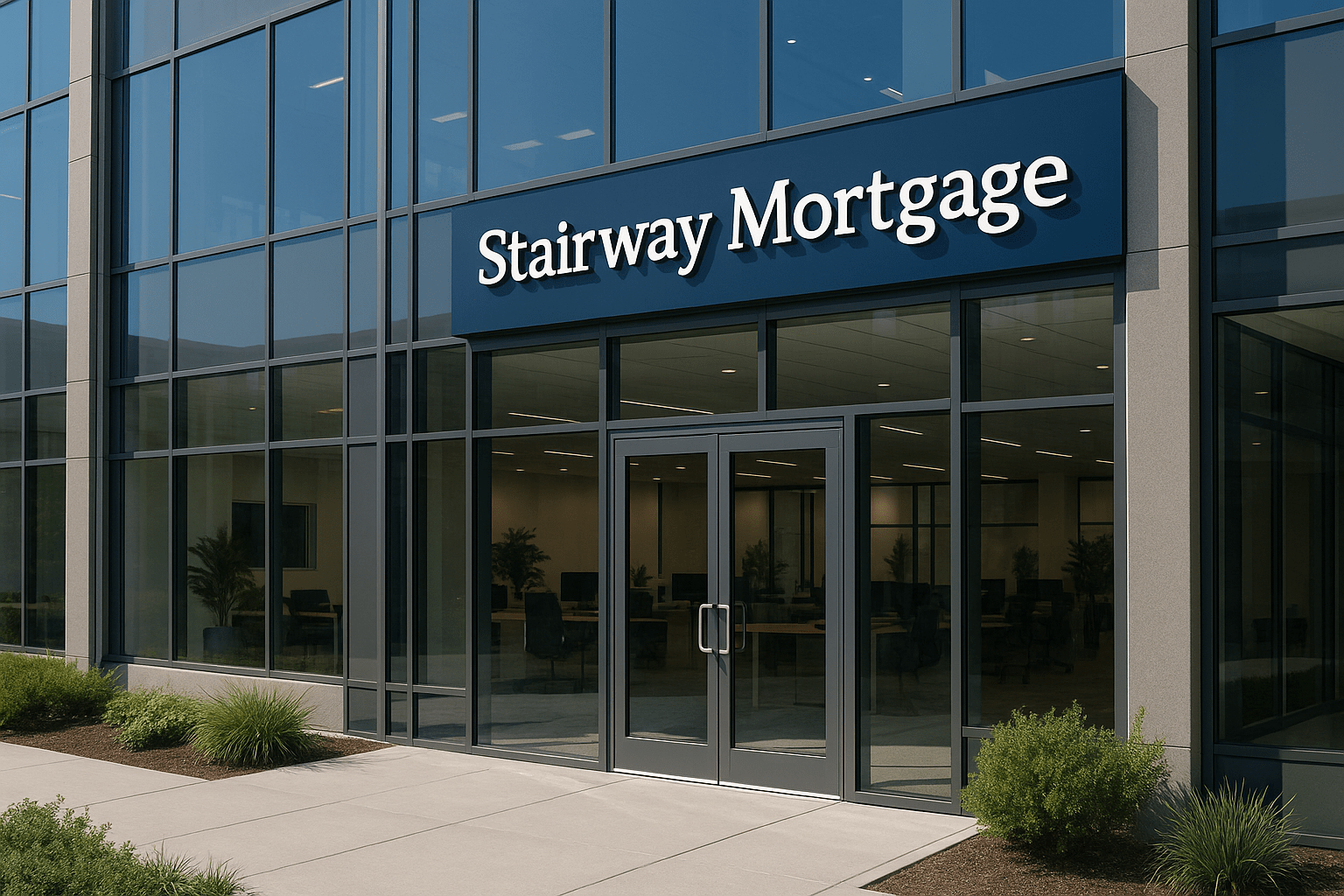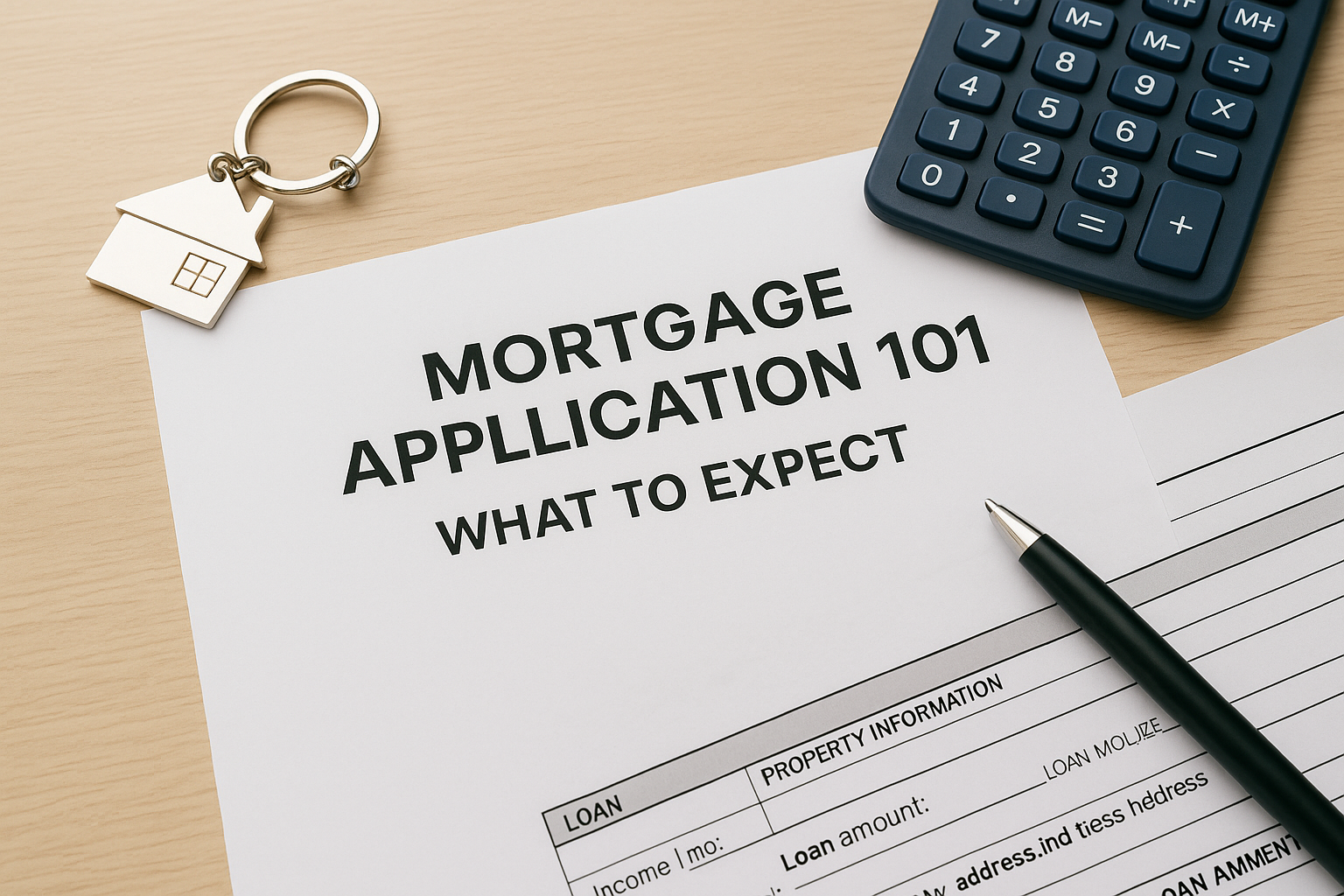Appraisal When Buying a House: What Happens and How to Prepare Before It’s Too Late
Appraisal When Buying a House: What Happens and How to Prepare Before It’s Too Late

Home Buying Appraisal: Understanding the Process and Preparing for Success
You’ve found the perfect home. Your offer was accepted. You’ve made it through inspections. You’re weeks from closing and mentally decorating your new space. Then comes the appraisal—and suddenly everything stops. The appraiser says the home isn’t worth what you offered to pay.
This scenario catches thousands of first-time buyers off guard every year. Understanding the appraisal process before you need it prevents panic, helps you negotiate effectively, and sometimes reveals whether you’re making a wise purchase or emotional overpayment.
An appraisal is an independent estimate of your home’s market value, ordered by your lender to protect their investment. The lender asks: “If this buyer walks away tomorrow, could we resell this home and recover our loan amount?” They don’t care how much you love the property or what features drew you to it. They care what comparable homes recently sold for—cold, hard data supporting value.
In this guide, you’ll discover:
- Complete breakdown of the appraisal process (following Fannie Mae appraisal standards)
- What appraisers actually evaluate during inspections
- Why appraisals come in low and how to prevent it (per FHA appraisal requirements)
- Your options when appraisals don’t meet purchase price
- How to challenge appraisals effectively when warranted
This isn’t about gaming the system or inflating values. It’s about understanding how appraisals work so you can prepare properly, avoid surprises, and respond strategically if issues arise.
Concerned about appraisal challenges? Schedule a call to discuss strategies for protecting your transaction.
What Is a Home Appraisal and Why Is It Required?
A home appraisal is an unbiased professional opinion of a property’s market value, prepared by a licensed or certified appraiser who examines the home and researches recent sales of comparable properties in the area.
Why Lenders Require Appraisals
Lenders need to know they’re making sound investments. Your home serves as collateral for your mortgage. If you default, the lender forecloses and sells the property to recover their loan. They must ensure the loan amount doesn’t exceed the property’s actual value.
Without appraisals, lenders face substantial risk of lending more than properties are worth—a situation that contributed to the 2008 housing crisis when lax lending standards and inflated values created massive losses.
Appraisals protect lenders AND borrowers. While primarily for lender protection, appraisals also prevent you from overpaying dramatically for properties. A low appraisal, though frustrating, might save you from making a poor financial decision.
When Appraisals Occur in the Process
Appraisals happen after your offer is accepted and you’ve entered into a purchase contract. Your lender orders the appraisal once you’ve submitted your loan application and initial documentation.
Timing typically falls between inspection and closing, usually taking one to two weeks from order to report delivery depending on appraiser availability and property complexity.
FHA loans, conventional loans, VA loans, and USDA loans all require appraisals. The appraisal standards vary slightly by loan type, with VA and FHA having more stringent property condition requirements than conventional loans.

What Do Appraisers Look For When Evaluating Your Home?
Appraisers examine both the property itself and comparable sales data to determine fair market value. Understanding their evaluation criteria helps you anticipate potential issues:
Property Physical Condition
Overall condition and maintenance level significantly impact value. Well-maintained homes appraise higher than properties showing deferred maintenance or damage.
Major systems functionality—HVAC, plumbing, electrical, roof condition—affects appraisal values. Appraisers note systems’ ages, conditions, and any obvious defects or safety concerns.
Structural integrity including foundation, framing, and major components. Significant structural issues lower appraised values or sometimes prevent loan approval entirely.
Safety and health hazards like peeling lead paint, exposed electrical wiring, or mold growth can impact appraisals, particularly for FHA and VA loans with strict property standards.
Property Features and Characteristics
Square footage is fundamental to value. Appraisers measure homes carefully, and square footage discrepancies from listing information sometimes surprise buyers.
Bedroom and bathroom count heavily influences value. Homes with more bedrooms and bathrooms typically appraise higher than smaller comparable properties.
Lot size and usable land contribute to value, especially in areas where larger lots command premiums.
Garage, basement, and additional spaces add value when finished and functional. Unfinished basements contribute less value than finished living space.
Updates and improvements like renovated kitchens, updated bathrooms, new flooring, or modern fixtures increase appraised values when done with quality and appropriate for the neighborhood.
Unique or custom features cut both ways. Some special features add value, others make properties harder to appraise because few comparable homes exist.
Comparable Sales (Comps)
Appraisers rely heavily on recent sales of similar homes in your area—typically within the past three to six months and within one mile, though urban and rural areas differ in comp selection.
Ideal comparable properties match your home in:
- Square footage (within moderate percentage)
- Bedroom and bathroom count
- Age and condition
- Lot size
- Location and neighborhood
- Style and construction quality
Appraisers make adjustments when comps don’t match perfectly. If a comparable home has an extra bathroom, the appraiser reduces its sale price before comparison. If your home has a garage and a comp doesn’t, the appraiser adds value to the comp’s price for comparison purposes.
Limited comparable sales make appraisals challenging. Unique properties, rapidly appreciating markets, or areas with few recent sales sometimes result in lower appraised values simply because supporting data is scarce.

Market Conditions
Current market trends influence appraisals. Rapidly appreciating markets might show values rising faster than closed sales reflect, creating appraisal challenges. Declining markets show the opposite.
Days on market for comparable sales matter. Homes that sold quickly at asking price or above support higher values than properties that lingered on the market with price reductions.
Why Do Some Appraisals Come In Low?
Low appraisals happen when the appraiser’s determined value falls below the purchase price. Several factors cause this frustrating situation:
Rising Prices Outpacing Closed Sales Data
In rapidly appreciating markets, prices increase faster than closed sales data reflects. Appraisers use sales from the past several months, but if prices jumped substantially during that time, recent contracts (not yet closed) reflect higher values than comparable closed sales show.
You might be ahead of the market rather than overpaying. Your contract price could be accurate for current conditions, but appraisers must use historical closed sales for support.
Multiple Offer Situations Pushing Prices Higher
Competition drives prices above typical values. When multiple buyers bid aggressively, winning offers often exceed what normal market conditions would support. Appraisers see only the data, not the bidding war dynamics.
Emotional attachment affects buyers’ willingness to pay, but doesn’t change comparable sales supporting values.
Unique or Hard-to-Value Properties
Distinctive homes with unusual features, custom designs, or rare characteristics lack good comparable sales. Appraisers struggle to value properties with few similar sales.
Overimproved homes exceeding neighborhood norms—the most expensive or upgraded home in modest areas—often can’t recover their full value in appraisals.
Appraiser Unfamiliar with Neighborhood
Not all appraisers know every market intimately. An appraiser unfamiliar with your specific neighborhood might miss important value factors or select less relevant comparable sales.
Rural or specialized markets pose particular challenges for appraisers who don’t regularly work in those areas.
Seller Overpricing and Buyer Over-Offering
Sometimes properties are simply overpriced, and eager buyers make offers without proper due diligence. The appraisal reveals the gap between asking price and market value.
First-time buyers sometimes lack context for pricing, relying too heavily on listing prices rather than researching actual sold data.
What Are Your Options When Appraisals Come In Low?
A low appraisal doesn’t automatically kill your deal, but it creates challenges requiring negotiation and decision-making. You have several options:
Option 1: Renegotiate the Purchase Price
Ask the seller to reduce the price to match the appraised value. This is your strongest position if you included an appraisal contingency in your contract—a clause stating you can back out if the appraisal comes in low.
Sellers’ willingness to negotiate depends on:
- How motivated they are to sell
- Whether they have backup offers
- How far apart appraised value and contract price are
- Current market conditions and their leverage
In buyer-favorable markets, sellers often agree to price reductions matching appraisals rather than losing the sale. In competitive markets, sellers might refuse, knowing other buyers exist.
Option 2: Split the Difference
You and the seller negotiate to meet halfway on the appraisal shortfall. If the appraisal came in a few thousand below contract price, perhaps you bring additional cash and the seller reduces their price modestly.
This compromise approach often satisfies both parties when the gap isn’t enormous and both want the deal to proceed.
Option 3: Pay the Difference Out of Pocket
Bring additional cash to closing to cover the gap between appraised value and purchase price. Your lender will only loan based on appraised value, so you must make up the difference.
This option works if:
- You have sufficient additional cash available
- You truly love the home and believe the value is there despite the appraisal
- You plan to own long-term, giving appreciation time to close the gap
- You’re in a competitive market with limited inventory
Risks of this approach include starting with less equity than anticipated, potentially owing more than the home’s worth if values decline, and depleting your cash reserves.
Use the conventional loan calculator or FHA loan calculator to model how different down payment amounts affect your monthly payments and total costs if you bring additional cash.

Option 4: Challenge or Request Reconsideration of Value
If you believe the appraisal contains errors or used inappropriate comparable sales, you can request a reconsideration of value. Provide:
- Better comparable sales the appraiser missed
- Evidence of property features or improvements the appraiser understated
- Errors in the appraisal report (incorrect square footage, missing features, etc.)
- Market data supporting higher values
Your lender, agent, and you should collaborate on reconsideration requests, providing compelling evidence professionally. Emotional arguments don’t work—only data matters.
Success rates vary. If the appraisal contains clear errors, reconsideration often succeeds. If it’s simply a difference of opinion about value, changes are less likely.
Option 5: Order a Second Appraisal (If Allowed)
Some loan programs allow second appraisals, though policies vary by lender and loan type. A different appraiser might arrive at a different value, though there’s no guarantee the second appraisal will be higher.
This costs additional money and delays closing, so weigh these factors against potential benefits.
Option 6: Walk Away from the Deal
If your contract includes an appraisal contingency, you can cancel the transaction and recover your earnest money when appraisals come in low.
Walking away protects you from overpaying and frees you to find properties where values align with asking prices. While disappointing after investing time and emotion, sometimes this is the wisest choice.
Consider walking away when:
- The appraisal gap is substantial and negotiations fail
- You lack additional cash to cover the difference
- The property has other concerns beyond just appraisal value
- You discover better opportunities while under contract
How Can You Prevent Appraisal Problems Before They Happen?
Strategic planning reduces appraisal surprises:
Include Appraisal Contingencies
Never waive your appraisal contingency unless you have substantial cash reserves and willingness to cover any gap. This protection allows you to exit the contract if values don’t support your offer.
In competitive markets, some buyers waive contingencies to strengthen offers, but this creates significant risk if appraisals come in low.
Research Comparable Sales Before Offering
Work with your agent to analyze recent sales before making offers. Understanding typical prices for similar homes helps you avoid over-offering substantially above market levels.
Look for actual sold prices, not listing prices. Asking prices don’t determine value—only closed sales matter for appraisals.
Make Realistic Offers Based on Data
Even when emotionally attached, ground your offers in market realities. Offering significantly above asking price without supporting data increases appraisal risk.
Consider market conditions. In hot markets with rapid appreciation, higher offers might be justified. In slower markets, conservative offers protect you.
Choose Lenders with Local Appraisal Networks
Lenders with strong relationships to local appraisers often have better outcomes. Local appraisers know neighborhoods, understand market nuances, and select better comparable sales than out-of-area appraisers unfamiliar with local dynamics.
At Stairway Mortgage, we work with appraisers experienced in your specific market, improving the likelihood of accurate valuations that support your transactions.

Understand Your Loan Program’s Appraisal Standards
Different loan types have varying requirements:
FHA loans include strict property condition requirements beyond just value. Appraisers flag safety issues, peeling paint, and numerous other conditions requiring repair before closing.
VA loans have similarly stringent standards ensuring military members purchase safe, sound properties. Missing handrails, roof issues, or safety concerns prevent approval until corrected.
Conventional loans have more flexible property standards, typically only requiring properties to be habitable and marketable.
USDA loans fall between FHA and conventional in property requirement strictness.
Understanding your loan’s standards helps you select appropriate properties unlikely to face appraisal-related obstacles.
What If You’re Buying With Low or No Appraisal Loan Programs?
Some specialized loan programs reduce or eliminate appraisal requirements:
Certain refinances like VA IRRRL or FHA Streamline don’t require new appraisals, using prior values.
Some investor loan programs have flexible appraisal requirements or alternatives like broker price opinions, though these typically carry higher rates.
Portfolio lenders sometimes use less stringent appraisal processes, though availability varies.
Most purchase transactions require full appraisals, especially with government-backed loans and conforming conventional financing.
How Does Stairway Mortgage Help You Navigate Appraisals?
Appraisal challenges require experienced guidance to resolve effectively. At Stairway Mortgage, we help first-time buyers prepare for and navigate appraisal processes:
We discuss appraisal risks during pre-approval, helping you understand how different offers might face appraisal challenges based on market data.
We work with reputable local appraisers who understand your market and consistently produce accurate valuations supporting transactions when appropriate.
We review appraisal reports carefully for errors or opportunities to request reconsideration when findings seem inconsistent with market data.
We help you evaluate your options when appraisals come in low—analyzing whether renegotiating, bringing additional cash, or walking away makes most sense for your situation.
We coordinate with your agent to present strong reconsideration requests when warranted, combining market expertise with mortgage knowledge for the best outcomes.
We time appraisal orders strategically to allow sufficient time for resolution if issues arise, preventing last-minute crises at closing.
Many of our first-time buyer clients successfully navigated appraisal challenges because we prepared them early, set realistic expectations, and provided expert guidance when issues arose.
Ready to Navigate the Appraisal Process Confidently?
Understanding appraisals transforms them from mysterious obstacles into manageable steps in your home buying journey. With proper preparation, realistic expectations, and expert guidance, you can handle appraisal processes smoothly—and respond strategically when challenges occur.
Your next steps:
If you’re about to make an offer and want to assess appraisal risks, schedule a call to review comparable sales data and discuss realistic value expectations.
If you’re ready to move forward with your purchase, get pre-approved with a lender who understands local appraisal dynamics and can position you for success.
If you want to understand how different loan programs affect appraisal requirements:
- Review FHA loan appraisal standards
- Explore conventional loan flexibility
- Check VA loan property requirements
Remember: Appraisals protect you as much as they protect lenders. A low appraisal, while frustrating, might save you from overpaying. View appraisals as valuable third-party perspectives on value rather than obstacles to overcome, and you’ll make wiser purchasing decisions.
Frequently Asked Questions
Can I talk to the appraiser or be present during the appraisal?
Generally no, you should not contact the appraiser directly or be present during inspection. Federal regulations require appraiser independence to prevent influence or pressure that could affect valuations. Your lender orders the appraisal through an appraisal management company that maintains separation between buyers, sellers, agents, and appraisers. However, you can provide information to your lender or agent who can forward relevant facts to the appraiser—recent comparable sales you discovered, details about improvements made, or corrections to public record information. Just don’t expect direct communication or presence during inspection. Your agent can typically be present to provide access, but should not attempt to influence the appraiser’s work.
How long does an appraisal take and when will I see the results?
The physical inspection typically takes one to two hours depending on property size and complexity. However, receiving the completed appraisal report usually takes one to two weeks from when your lender orders it. Delays occur due to appraiser availability, scheduling challenges, time needed to research comparable sales, and report preparation. In busy markets or rural areas with few appraisers, timelines can extend longer. Your lender receives the report first and reviews it before sharing with you. If you’re approaching closing and haven’t received appraisal results, contact your lender for status updates. Most lenders order appraisals as soon as you’re in contract to allow maximum time for any issues to resolve before closing dates.
What happens if the appraisal comes in higher than the purchase price?
This is good news—you’re getting a favorable deal and instant equity. Your lender loans based on purchase price, not appraised value, so you don’t need additional down payment. You simply close as planned, starting ownership with more equity than your down payment created. Higher appraisals indicate you negotiated well or found undervalued property. This situation occurs in buyer-favorable markets, with motivated sellers, or when properties need cosmetic updates that don’t affect value but reduce buyer appeal. Enjoy the immediate equity boost and consider it confirmation of a smart purchase. See how instant equity accelerates your wealth building using the conventional loan calculator comparing different value scenarios.
Will the seller see my appraisal report?
Not automatically, but they might request it, especially if the appraisal comes in low and you’re requesting price reductions. While the appraisal is ordered for your lender and technically belongs to you, sellers often ask to review it when challenging values or negotiating price changes. You’re not required to share it, but refusing when requesting price concessions based on low appraisals typically stalls negotiations. Most sellers and their agents want to understand appraisers’ reasoning and see comparable sales used. If you share the report, sellers might disagree with valuations or provide additional comparable sales for reconsideration. Working cooperatively with sellers to address appraisal issues usually produces better outcomes than refusing to share information.
Can I get my appraisal fee refunded if the deal falls through?
Unfortunately no, appraisal fees are generally non-refundable regardless of whether you close. You paid for professional services rendered—the appraiser inspected the property, researched sales, and prepared a report. That work was completed even though your transaction didn’t close. This is why careful property selection and realistic offers matter—you don’t want to spend on appraisals for multiple properties that don’t work out. However, if your contract included an appraisal contingency and the low appraisal caused the deal to fail, your earnest money should be refunded even though you lose the appraisal fee. Budget for potentially losing appraisal fees if making offers on multiple properties or in competitive markets where some deals might not succeed.
How much does a home appraisal cost?
Appraisal fees vary based on property type, size, location, and loan program, typically ranging from a few hundred to over a thousand dollars for standard single-family homes. Complex properties, large estates, or unique properties requiring specialized expertise cost more. Rural properties with few comparable sales might incur higher fees due to additional research required. FHA appraisals sometimes cost more than conventional due to additional property inspection requirements. Your lender should disclose the estimated appraisal fee on your loan estimate when you apply. You typically pay this fee upfront or at closing depending on lender policies. The cost is worthwhile protection ensuring you’re not dramatically overpaying for property.
Also Helpful for First-Time Home Buyers
Loan Programs and Appraisal Requirements:
Understand how different loans handle appraisals:
- Review FHA loan appraisal standards with property requirements
- Explore conventional loan appraisals with flexibility
- Check VA loan property standards for military buyers
- Consider USDA loan appraisals for rural properties
Calculate impact of different values:
- FHA loan calculator with various price points
- Conventional loan calculator showing value impacts
- Purchase calculator with down payment scenarios
Learn from real experiences:
- FHA loan case study with appraisal navigation
- Conventional loan success story
- First-time buyer journey overcoming challenges
What’s Next in Your Journey?
Now that you understand appraisals, you’re prepared for one of the most critical steps between contract and closing. Continue building your knowledge about the final stages of your purchase.
Additional topics to master:
- Understanding your closing disclosure and final numbers
- Preparing for your final walkthrough
- What happens on closing day
- Your first responsibilities as a new homeowner
- How to protect and build your home’s value
Each piece of knowledge brings you closer to confident, successful homeownership.
Explore Your Complete Options
Loan Programs with Different Appraisal Standards:
- Browse all loan programs comparing requirements
- Explore government-backed options with specific standards
- Review conventional flexibility
Tools for Purchase Planning:
- Access all calculators for scenarios
- Use purchase calculators with different prices
- Try value impact tools
Success Stories for Guidance:
- Read all case studies across situations
- Browse appraisal challenges resolved successfully
- Explore smooth transactions
Concerned about appraisals? Schedule a call to discuss your specific property and market conditions.
Need a Pre-Approval Letter—Fast?
Buying a home soon? Complete our short form and we’ll connect you with the best loan options for your target property and financial situation—fast.
- Only 2 minutes to complete
- Quick turnaround on pre-approval
- No credit score impact
Got a Few Questions First?
Let’s talk it through. Book a call and one of our friendly advisors will be in touch to guide you personally.
Schedule a CallNot Sure About Your Next Step?
Skip the guesswork. Take our quick Discovery Quiz to uncover your top financial priorities, so we can guide you toward the wealth-building strategies that fit your life.
- Takes just 5 minutes
- Tailored results based on your answers
- No credit check required
Related Posts
Subscribe to our newsletter
Get new posts and insights in your inbox.







